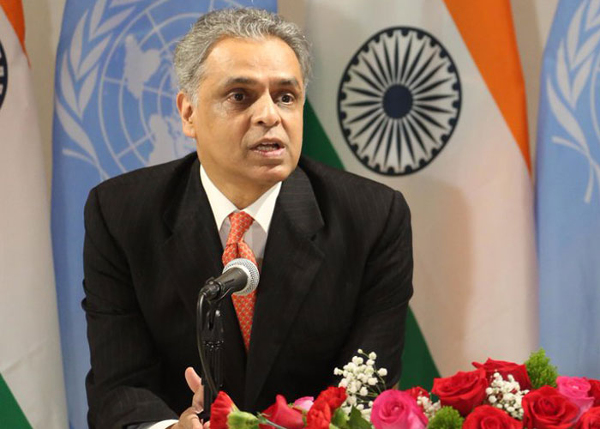India has lashed out at the continued “inaction” on the question of reforms to expand the UN Security Council and said the present body is “lacking legitimacy and accountability”.
More than 10 years after the launch of the Intergovernmental Negotiations reform in the UNSC to make it more representative of a world that is far different from the time the world body was created in 1945, the process has yielded not even a document of proposals — called a “text” — for discussions.
“This inaction on our part is not without cost,” Syed Akbaruddin, India’s permanent representative to the UN, said at a UN discussion Monday. “The Security Council is being called upon to address increasingly complex issues of international peace and security. Yet, it finds itself unable to act credibly or even effectively, for it is lacking legitimacy and accountability.”
India has been pushing for reforms to expand the Security Council, both the permanent and non-permanent members from the current 5 and 10, respectively.It has claimed a permanent membership, which has been backed by four of the permanent five; China is that outlier fifth.
India has joined Germany, Japan and Brazil to form the G-4 to push the reforms.
Akbaruddin’s remarks came at a UN meeting on the “Question of equitable representation on and increase in the membership of the Security Council and other matters related to the Council”.
G-4 and two other groups of countries — the Africa Group and the Arab group — are backing reforms. And several proposals are under consideration, including one that would expand the permanent membership but deny veto powers to the new member till a review sometime in the future. Yet another group of countries, Uniting for Consensus, is opposing the expansion of the permanent members. Members are known to be regional rivals of those supporting full-fledged reforms, and Pakistan is one of them.
Source: HT
Image Courtesy:RSTV
You may also like
-
IAF Aircraft Set Course For Exercise Eastern Bridge VII At Oman
-
India-us Working Together In Areas Like Critical Minerals, Supply Chains And Advanced Technologies: Shri Piyush Goyal
-
Defence Secretary to co-chair 5th India-Philippines Joint Defence Cooperation Committee meeting in Manila
-
2nd India-Japan Finance Dialogue held in Tokyo on 6th September, 2024
-
Prime Minister, Shri Narendra Modi welcomes Crown Prince of Abu Dhabi
